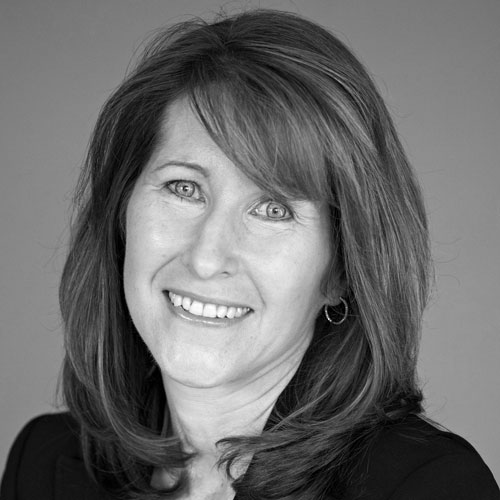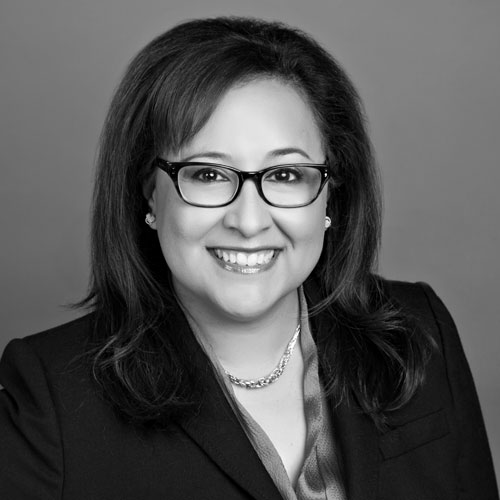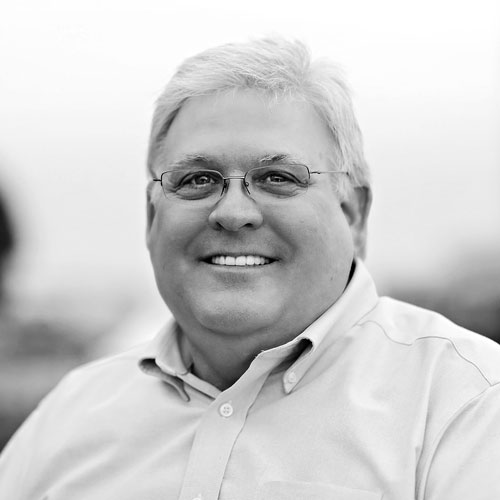Finding meaningful work sometimes means going out and creating work that you can believe in. That’s what Mary Lynne Hedley did. Hedley is the cofounder, chief operating officer, and president of TESARO, an oncology-focused biopharmaceutical company outside Boston that is dedicated to improving the lives of cancer patients.

TESARO didn’t originate in a traditional way with a drug or laboratory research. Instead, the biopharmaceutical company was born out of an idea Hedley had with her partner, Lonnie Moulder, of the type of company they wanted to spearhead.
“We wanted to build on our collective learning from past experiences, and that includes successes as well as failures, to try to create an organization whose purpose and mission was to improve the lives of oncology patients by responsibly developing and commercializing drugs,” Hedley says.
So far, it has lived up to her expectations. TESARO recently announced it was bringing its first drug to market. Varubi aims to prevent the nausea and vomiting that occurs in the days following administration of emetogenic chemotherapy.
Results from three Phase III clinical trials of Varubi demonstrated a significant reduction in the number of patients experiencing these symptoms on days two to five following chemotherapy—the time when patients are back at home and away from the immediate care of a doctor or nurse.
“When physicians are taking care of patients with cancer, their primary concern—of course, as it should be—is to get rid of the cancer. They’re thinking about the chemotherapy,” Hedley says. “And some don’t necessarily put as much emphasis into what we call the ‘supportive care’ element, or managing the side effects of chemotherapy, and that is where VARUBI can provide value.”
Hedley believes that along with drug development and commercialization is the role TESARO plays in education and opening the doors of communication between patients and healthcare providers. Hedley notes that sometimes patients undergoing chemotherapy do not share their symptoms with their nurse or doctor.
“It’s clear that often patients are afraid to say something if they experience nausea and vomiting after chemotherapy. They may be afraid that their chemotherapy will be stopped or that doses will be reduced,” Hedley says. “Or they may think that they should just be strong and push through it—that it’s what’s expected. They may assume that nausea and vomiting mean that their treatment is working. And none of that is true.”
“Once I started becoming aware of the world and societies on a broader level, it fundamentally helped define me as a professional. And it made me aware of the importance of human dignity, the meaning behind opportunity, or the lack thereof, and the extreme power of hope.”
By managing chemotherapy-induced nausea and vomiting effectively, those who are bravely facing cancer can spend time with loved ones, doing what’s most important to them. That represents the aspirational commitment of VARUBI—allowing patients to “just be,” to play the important role of mom, dad, husband, wife, brother, sister, or friend rather than suffering through the side effects of chemotherapy, Hedley says.
The goal is to make sure that patients who are suffering from nausea and vomiting know that they don’t have to suffer by finding ways to dissipate the fear so that patients will talk to their physicians and nurses, accordingly to Hedley.
TESARO is also developing Niraparib, an oral therapy for patients with certain types of ovarian and breast cancer, as well as several immuno-oncology drug candidates, which are designed to harness the immune system to fight cancer.
“We think about the long journey oncology patients must face,” says Hedley, about the areas TESARO chooses to focus on. “It’s not just about helping people live for a few more months with a poor quality of life. It’s about what we can we do to benefit them in the biggest way possible, extending the time patients have to experience life.”
Meaningful work has been driving Hedley throughout her career. During her education, she traveled the globe opening dental clinics in developing countries. Hedley began her first company after completing her post-doctoral work at Harvard, eventually selling the company to MGI PHARMA and staying on as chief scientific officer, leading research and development functions. Eventually, Hedley, in conjunction with the company’s executive team, sold MGI PHARMA and cofounded her current company.
Now, Hedley believes that her greatest role is to put the right people in place to do their jobs. And as a leader, Hedley thinks her staff would say she’s “really tough,” meaning she expects a lot from them, but that she’s fair and supportive of them as individuals and professionals.
“As an executive, it’s my job to ensure we have people who are inspired by our mission, are willing to live our values, and are willing to do something that, at the end of the day, is going to be meaningful,” Hedley says. This is especially important as she envisions TESARO’s future. The groundbreaking biopharmaceutical company looks to responsibly provide innovative drugs to the broadest number of people who are suitable to receive them, Hedley says.
With her strong dedication to this passion-fueled mission, it is hard to imagine that starting out, Hedley saw herself becoming a professor, not the head of a company. She says the change in what she defined as meaningful work, sparked by her world travel experiences, is what caused her to reconsider her career path.
“Once I started becoming aware of the world and societies on a broader level, it fundamentally helped define me as a professional,” Hedley says. “And it made me aware of the importance of human dignity, the meaning behind opportunity, or the lack thereof, and the extreme power of hope.”
Ultimately, providing an opportunity for hope is what pushes Hedley to do what she can to help. TESARO’s leader has seen the motivational power of hope firsthand. It lifts people and enables them to thrive despite adversity and suffering, Hedley says, adding: “You see this [hope] in the barrios of Caracas, the mountains of Nicaragua, and frankly, in every patient living with cancer whom we feel honored to support during their long and challenging journey.”

